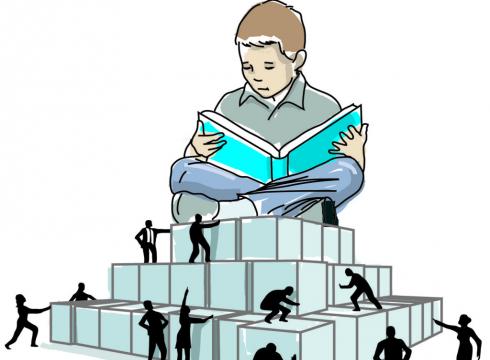
Unclear Priorities in Education
Street’s article concerning the standards of literacy was a very intriguing read. While riffing on “No Child Left Behind” it was very informative to read the actual processes used to evaluate literacy in schools. And to be honest, it was also very frustrating to confirm what I already knew– that people are stupid. Street talks about the scientific methods used to standardize a process like literacy. It honestly is so ridiculous as to be almost confusing. Who could be dumb enough to actually think that could work? And no, I do not actually want to know the answer to that question because that answer would probably sadden and shock me. But what I want to know is how can literacy and it’s changing definitions and movement be categorized in a scientific way if it is not even able to be defined scientifically?
Some interesting tidbits from the article highlight what we have been talking about in class all along. The article quotes a child discussing his disconnect of school work and real life. The child was frustrated with his “inability to utilize his experience outside of school” in a meaningful way. That is definitely a problem. School should relate to the outside world– isn’t that what grade school is supposed to prepare us for? Teachers tell us to learn cursive because we will need it as a adult. They tell us to learn math because adults use math. If the point of school and education is to help us through life, then it should utilize the real world and incorporate that into the classroom. Sadly, school cannot prepare us for all of life’s realities. But neither should it create it’s own system that has little relations with the actual world and culture in which we live.
I think my favorite line from Street’s article is the following: “some of the problems with the “scientific” approach–its inability to engage with the nuances of cultural meanings, the variation in uses of literacy across contexts and the problems already highlighted with the autonomous model of literacy – and attempt to construct more meaningful solutions.” That would highlight the current issues we have in our schools. “The problem arises as to whether there is a conflict between theory and policy and between the local and the needs of scale faced by administrators?” The answer is yes. Yes there is a disconnect between administrators trying to get standardized test scores up to secure funding instead of actually discerning what the kids know and what they have learned. If I am not mistaken, isn’t that point of education, especially at younger levels? If the answer is no, then I would say that our biggest problem is unclear priorities in education. But I have one larger, overall question: what is being done to fix these problems?

 Website:
Website: